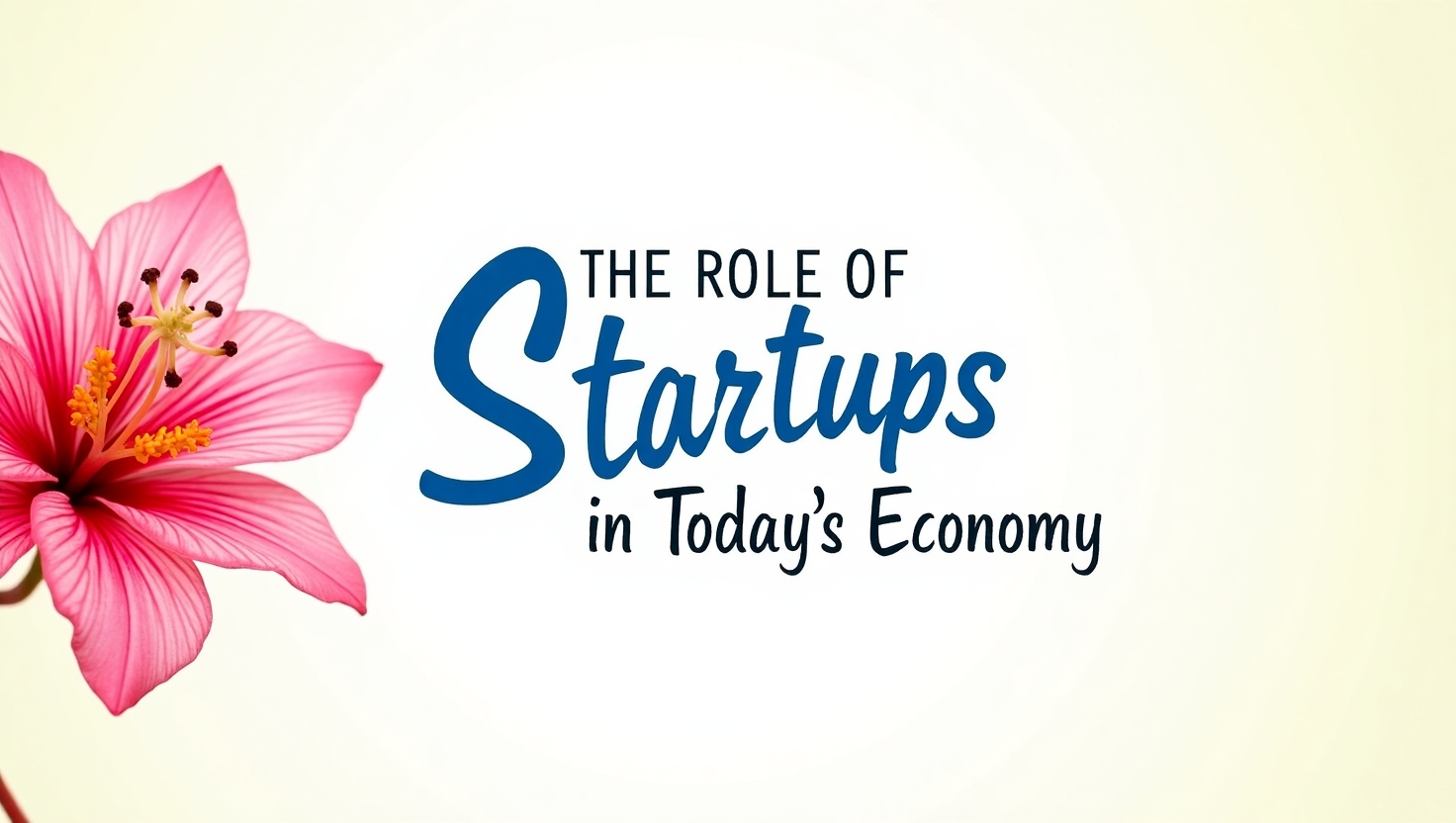Startups are essential to fostering innovation, generating employment, and accelerating economic growth in the quickly changing global economy of today. These vibrant, youthful businesses are changing industries and how we live and work. They are frequently the result of necessity and innovation. From modest digital businesses in poor countries to Silicon Valley tech unicorns, startups have emerged as a vital force for advancement in the contemporary world.

A Startup: What Is It?
A startup is a recently formed company that is typically in its early phases and was started by one or more entrepreneurs with the goal of creating and launching a novel good or service. Startups, as opposed to established companies, strive for quick expansion, scalability, and creativity. They frequently use technology to upend well-established markets and provide better, quicker, or more economical answers to common issues.
Startups: An Innovation Catalyst
Innovation is one of the main ways that startups contribute to the economy. Startups are nimble and risk-tolerant, in contrast to big businesses that could be slowed down by red tape and inflexible frameworks. This adaptability enables them to test new technology, try out novel concepts, and react fast to shifts in the market.
Transportation, hospitality, and entertainment have all been transformed by startups like Uber, Airbnb, and Spotify, respectively. They rethought entire sectors rather than merely enhancing already-existing offerings. Some of humanity’s greatest problems may be resolved by the innovative solutions being introduced by even smaller businesses in industries like healthcare, education, and renewable energy.
Economic Impact and Employment Creation
Startups have a major role in creating jobs. The Kauffman Foundation found that startups and new businesses account for almost all of the net job growth in the United States. As these companies expand, they support regional vendors, add workers, and boost the economy. Startups in developing nations are lowering reliance on traditional government jobs by providing young, tech-savvy populations with employment opportunities.
Additionally, startup ecosystems serve as economic centres and may be found in places like Bangalore, Karachi, Berlin, San Francisco, and others. They draw resources, talent, and investment, encouraging an innovative and entrepreneurial environment that benefits entire communities.


Enhancing the Digital Transformation
At the front of the digital revolution are startups. Startups are facilitating the adoption of new technologies by businesses and consumers, whether through blockchain, AI, cloud computing, or finance. They are assisting established sectors in becoming more customer-focused, data-driven, and efficient.
For instance, agritech businesses are utilising drones and sensors to assist farmers maximise their harvests, while edtech entrepreneurs are revolutionising the way students study. Startups in the healthcare industry are providing wearable technology and telemedicine platforms that enable millions of people to receive individualised care. Services are becoming more inclusive and accessible thanks to these advancements.
Bringing in Capital and Promoting Entrepreneurship
Every year, startups draw billions of dollars in venture financing. This helps other industries like advertising, logistics, legal services, and real estate in addition to funding their expansion. In order to stimulate economic growth, venture-backed entrepreneurs frequently reinvest their earnings into spin-off businesses or new initiatives.
Startups encourage an entrepreneurial culture in addition to their financial influence. They inspire young people to tackle real-world problems, think for themselves, and take chances. A new generation of independent, tech-savvy innovators is being empowered by this cultural transformation in many regions of the world, especially emerging countries.
Addressing Environmental and Social Concerns
These days, companies are more concerned with effect and purpose than merely making money. Climate change, poverty, gender inequality, and access to education are among the concerns being tackled by social companies and green entrepreneurs. Many firms are motivated by the desire to improve the world, from platforms that link funders with rural schools to eco-friendly packaging enterprises.
This expanding “impact entrepreneurship” movement demonstrates how effective business can be in promoting social justice. As a result of their growing awareness of this, governments and non-governmental organisations are collaborating with startups to expand answers to global issues.
Obstacles Startups Face
Startups have a lot of obstacles to overcome despite their potential. Common obstacles include high failure rates, a lack of capital, regulatory obstacles, and fierce competition. Many startups don’t make it past their first few years. In many areas, access to business education, adequate infrastructure, and mentorship is still restricted.
However, companies are getting more assistance than ever before thanks to the growth of government support programs, accelerators, and incubators. To secure their long-term viability, public and private stakeholders must keep funding startup-friendly environments

In conclusion
.
Startups are the lifeblood of the contemporary economy; they are more than just tiny enterprises. Startups are changing our economy by pushing the limits of innovation, generating employment, drawing in capital, and resolving pressing issues. They are essential to future growth and development because of their influence on all industries and geographical areas.
Supporting startups is a commitment to advancement, opportunity, and creativity in a world that is undergoing rapid change, not just a business tactic. To support and encourage these bold endeavours that are creating the future of the globe, governments, investors, and communities must collaborate.
Startups’ place in the economy
Startups’ effects on the economy
Innovation from startups
Startups creating jobs
Growth of startups by 2025
Entrepreneurship and technology
Startups’ advantages in the contemporary economy
Startups’ digital transformation
Development of startup ecosystems



